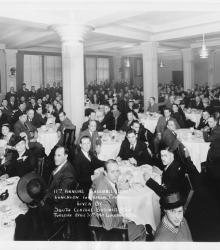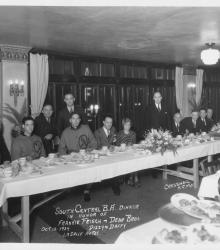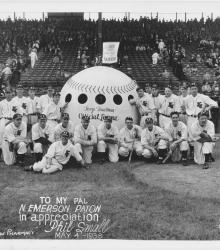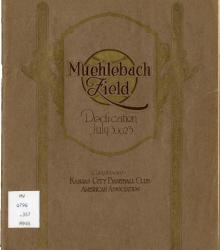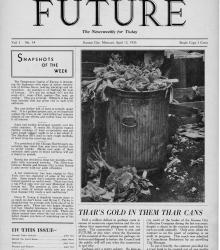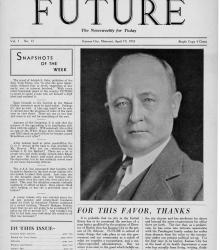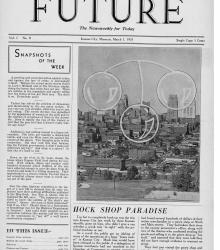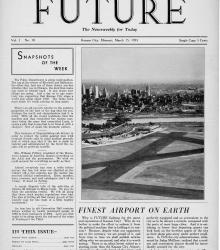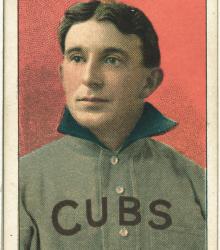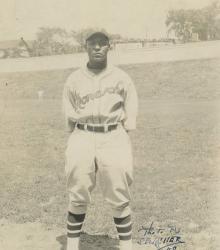Photograph of the 11th Annual Baseball Day Luncheon given by the South Central Business Association for the Kansas City Blues at the Lucerne Hotel.
Kansas City Blues
Photograph of Frankie Frisch, Dizzy Dean, and Daffy Dean with unidentified men and women at podium during South Central Business Association luncheon in the ballplayers' honor at the LaSalle Hotel.
Group portrait of the 1936 Kansas City Blues baseball team inside Muehlebach Field (later renamed Blues/Municipal Stadium). The team is posed in front of an oversized baseball display that reads "George Trautman Official League". Autograph on photo reads "To my pal N.
Program distributed for the Muehlebach Field dedication on July 3, 1923, including a proclamation by Mayor Frank H. Cromwell recommending that "every employer forget the ever present serious side of life" in order to attend, and let employees attend, the opening game.
Issue of the anti-corruption, Kansas City-based newspaper, Future: The Newsweekly for Today.
Issue of the anti-corruption, Kansas City-based newspaper, Future: The Newsweekly for Today. The front page includes a photo and article, continued on page 8, about "Dr.
Issue of the anti-corruption, Kansas City-based newspaper, Future: The Newsweekly for Today.
Issue of the anti-corruption, Kansas City-based newspaper, Future: The Newsweekly for Today.
Issue of the anti-corruption, Kansas City-based newspaper, Future: The Newsweekly for Today. The front page includes an article, continued on page 8, discussing the difficulty of accessing city records for citizens or reporters. Other featured articles include: “Snapshots” (p.
Arguably one of the most overlooked players from the early days of baseball, Johnny Kling, a native of Kansas City, was the game’s premier defensive catcher in the first decade of the 20th century and a key member of the great Chicago Cub teams of 1906 to 1910. Nicknamed “Noisy” for the constant stream of chatter he maintained behind the plate, Kling was admired by teammates and opponents for his ability to defend, handle pitchers and engage in the mental aspects of the game during the “dead-ball era.” Kling returned to Kansas City after his retirement from baseball and pursued a successful career in business, primarily real estate. In 1933 he bought the minor league Kansas City Blues and immediately eliminated segregated seating at Meuhlebach Field, which was also the stadium used by the Kansas City Monarchs of the Negro Leagues.
On October 6, 1922, the Kansas City Monarchs and the Kansas City Blues baseball teams embarked on a six-game series that would end with the Monarchs being crowned "The New City Champions" by the Kansas City Star.
